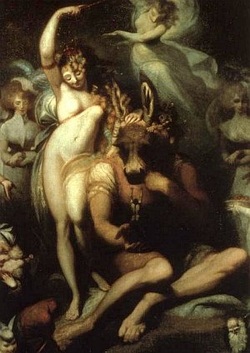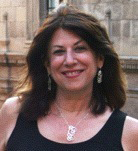
Spirits of Another Sort Workshop Journal #3- Where Are All The Actors?
One of my goals in documenting this process was to work towards the development and creation of a practical model for educators and fellow artists who interface with these particular populations. Sara Buffamanti and Becky Leifman are both teaching artists, Will Dickerson (our Oberon/Theseus), is a special education teacher in addition to being both an actor and director.
For me, the Disability Community is not exclusively comprised of people with disabilities. The community also includes doctors, physical therapists, occupational therapists, medical professionals, family members, friends, lovers, teachers- anyone who might enter that particular sphere of influence. This makes it one of the most diverse, complicated and inclusive communities in existence.
I met Jan Valle several years ago. A professor at The City College of New York in the field of Disability Studies, Jan was one of the first people I told about the project. I was eager to have her sit in on the process and get her perspective on the work. She came to one of our initial Rude Mechanical rehearsals and sat in on our first read-through with the full ensemble earlier this week. I am grateful for her participation and appreciate the fact that she was able to contribute something to this series.
-Gregg Mozgala, Artistic Director

I am a professor in the School of Education at The City College of New York. I have worked in the field of special education for over three decades; however, I currently teach and write from the theoretical perspective of Disability Studies in Education (DSE). In contrast to the conceptualization of Disability as a deficit, disorder, or dysfunction that undergirds special education, DSE scholars are interested in the social construction; what constitutes Disability in any given society and conversely what reinforces constructed notions of ability. In other words, if we reframe Disability as natural human variation rather than pathology, we shift away from a deficit model in which persons with disabilities are viewed for what they cannot do and move toward a strengths-based approach that assumes competence and values individuals for what they can do. DSE explicitly troubles widely accepted notions of what constitutes “normalcy” and its oppression of many individuals who cannot or choose not to conform to culturally determined standards of “normalcy.”
So, it is through a DSE lens that I viewed rehearsal with the Rude Mechanicals. (I am particularly interested in theatre and disability because I teach a course on inclusive theatre practices for CCNY’s graduate educational theatre program.) That evening, I entered an inclusive theatre space where able-bodied actors and actors with disabilities worked together in genuine community. This was no “special arts program” designed to meet “the needs” of the disabled as defined by non-disabled professionals. This was a rehearsal like any other rehearsal for professional actors. An assumption of competence was evident throughout every aspect of the rehearsal. The expectation was that every actor could and would participate meaningfully. Actors with and without disabilities thoughtfully considered character motivations and what “actions” might best represent those motivations. I was struck not only by the level of conversation initiated by those labeled as cognitively disabled, but also by the various and sophisticated ways they engaged in “sense-making.” While the able-bodied actors offered much in regard to experience, background, and leadership, the contributions made by the Rude Mechanicals legitimately enhanced understanding of the work for everyone. This was the conversation of ACTORS and a model for what is possible when we commit to a paradigm of competence.
Gregg’s conceptualization for this piece—Athenians as able-bodied actors, fairies as actors with physical disabilities, and the Rude Mechanicals as actors labeled with cognitive disabilities—is provocative in its inclusion and reflection of all of us who make up the human condition. I am reminded of a journal entry written by a student in my inclusion theatre class last semester. I think her words speak eloquently to the significance of Gregg’s ongoing work:
"The artist tries to portray and bring an understanding and meaning to the human experience, and what is that human experience without everything and everyone who is part of the human experience? It is not just about some of us. It is about all of us. So reflecting the experience of all of us is exactly what art is there to do. It is always pushing boundaries, exposing the truth, reflecting back at society what society is doing, making sense of the world’s petty problems by turning them into art. So without disability included, the art is incomplete."
 RSS Feed
RSS Feed